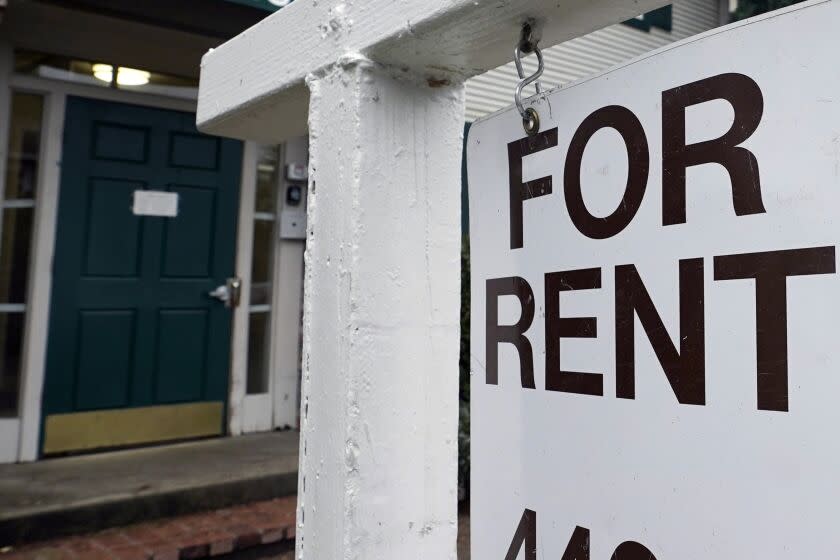Selling a rental property? Here are the tax consequences
Dear Liz: My siblings and I are considering selling a triplex. It was bequeathed to us by our mother when she died in 2007. There is no mortgage and it is fully occupied. If we sell, my wife and I (both over 50) would get roughly $200,000, and we'd like to minimize the tax impact. We own our home free and clear and have no debt. We'd like to use this windfall to help our son buy a home. We'd also give our daughter a cash gift. We have no interest in buying another investment property using a 1031 exchange. Any suggestions to minimize our tax bill given our circumstances?
Answer: Talk to a tax pro, because selling a rental property is more complicated than selling your personal home.
You’re not eligible for the $250,000-per-person home sale profit exclusion, and in addition to paying capital gains tax you also face a depreciation recapture tax of 25%. (Depreciation is the amount of wear-and-tear you wrote off during your ownership of the property; the IRS requires you to repay that tax break when you sell.)
A big capital gain could affect other areas of your finances, such as Medicare premiums, and the pro can help you plan for that as well.
A 1031 exchange would allow you to defer taxes on a rental property by buying a similar replacement property.
Another solution would be to hang on to the property, continue to enjoy the rental income and bequeath your portion of it to your children when you die. Your portion will receive a favorable step-up in tax basis so that your heirs won’t owe taxes on the capital gains that occurred during your ownership. They also won’t face the tax on depreciation recapture you would otherwise owe.
But that obviously isn’t a good solution if you no longer want to be a landlord or want the cash instead. In that case, the tax pro can help you properly account for selling costs, legal fees and improvement expenses that could reduce the tax hit and may be able to suggest other ways to manage your tax bill.
Opening an IRA for a retired spouse
Dear Liz: Are spousal IRAs a good idea for a couple when one spouse is retired but the other is working? I'm 63 and work full time. My husband is 76 and retired. I have a Roth IRA; he does not. I contribute the maximum amount to my IRA. If we create a spousal IRA for him, would we be able to contribute as if it were a regular Roth IRA?
Answer: Yes. Normally people must have earned income — such as wages, salary, commissions, tips or self-employment income — to contribute to an IRA or a Roth IRA. If you’re married and working, though, you can contribute up to the maximum amount on behalf of a nonworking spouse. In 2023, the maximum contribution for people 50 and older is $7,500. As long as you earn at least $15,000 ($7,500 times two), you can max out both accounts.
There’s no special “spousal IRA” account, by the way. Just open a regular IRA or Roth IRA in his name.
Ins and outs of HELOCs
Dear Liz: We have a home equity line of credit through our credit union. I have been paying it down very aggressively and it will be paid off in two months. That is our only debt. I was considering leaving a small ($100) balance. It would cost $7.50 a year to have the loan available but we would have immediate access to $200,000 with no paperwork, etc. Your thoughts?
Answer: Contact your credit union and ask if it’s necessary to maintain a balance to keep the line of credit open, because typically that’s not the case.
You should know, however, that HELOCs typically have two phases: a five- to 10-year “draw” period, during which you can borrow and repay the line much as you would a credit card, followed by a repayment period of 10 to 20 years during which you pay down any amount still owed. You normally can’t draw out additional money during the repayment period.
If your HELOC is nearing its repayment phase, you can replace it with a new HELOC that you leave open and unused for emergencies. Closing costs often range from 2% to 5% of the loan amount, although some lenders discount those fees.
Liz Weston, Certified Financial Planner, is a personal finance columnist for NerdWallet. Questions may be sent to her at 3940 Laurel Canyon, No. 238, Studio City, CA 91604, or by using the "Contact" form at asklizweston.com.
This story originally appeared in Los Angeles Times.
Source: Read Full Article
